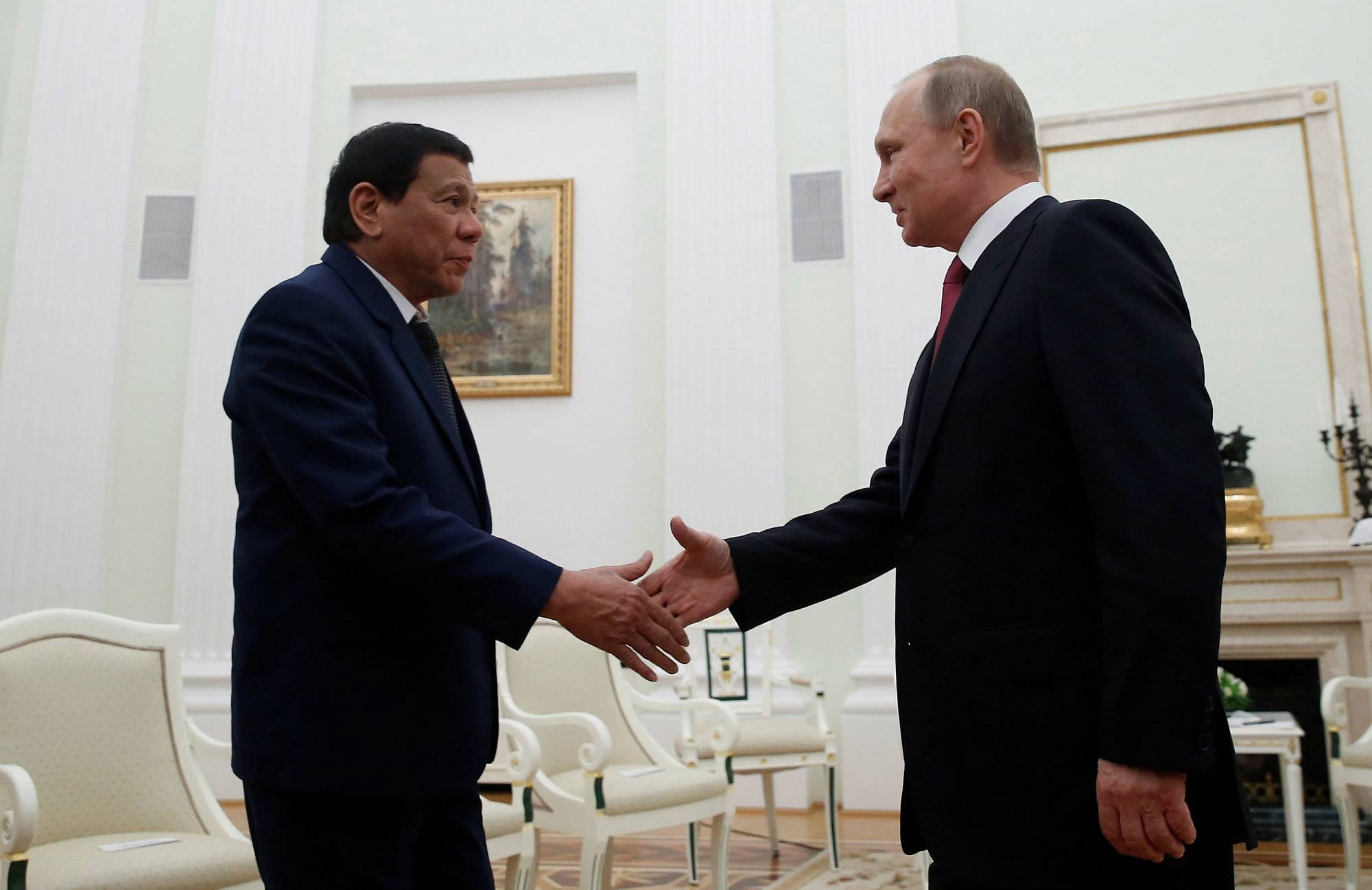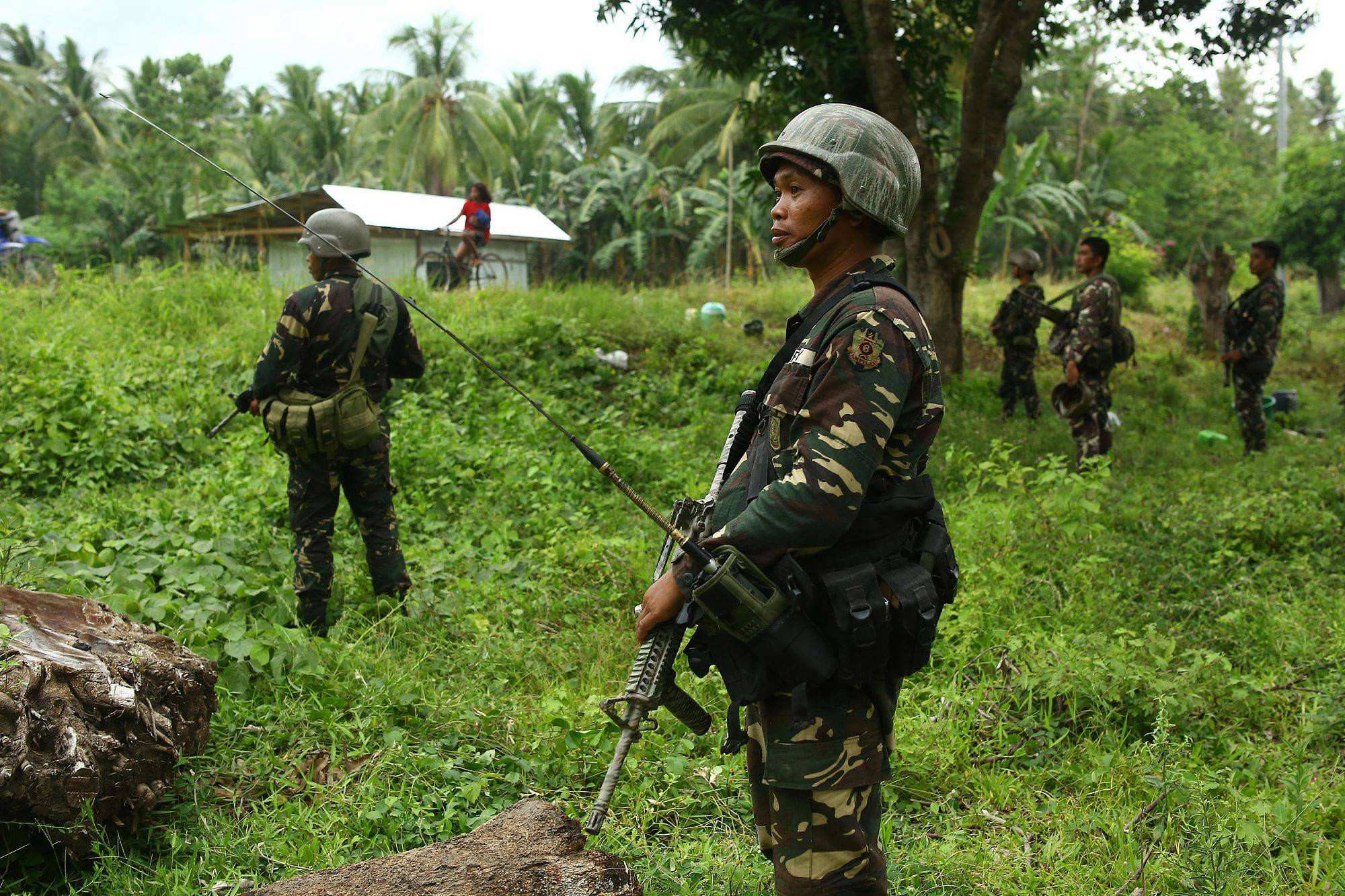Philippine President Rodrigo Duterte declared martial law Tuesday across the southern third of the country, after deadly clashes between security forces and ISIL-linked militants in a major city.
The announcement, made by his spokesman Ernesto Abella at a press conference in Moscow where Duterte was on an official visit, fulfills an often-repeated warning by the president that he would enforce military rule to quell security threats.

Russian President Vladimir Putin welcomes Philippine President Duterte during their meeting at the Kremlin in Moscow, Russia, May 23, 2017. /VCG Photo
Duterte placed all of the Mindanao region, which is home to 20 million people, under martial law for 60 days, Abella said in the nationally televised briefing.
Defense Secretary Delfin Lorenzana, who is also with Duterte in Moscow, said the military is in control of the situation, adding that more troops will be sent to Mindanao.
By declaring martial law, Lorenzana said the military can control the movement of the rebels, conduct searches, arrest people and suspend the habeas corpus.

May 10, 2017: Philippine soldiers patrol a village in Maguindanao Province, on the southern island of Mindanao. /VCG Photo
The fighting broke out after a joint team of the military and police tried to serve a warrant of arrest on Isnilon Hapilon, leader of the Abu Sayyaf group, around 2 p.m. local time, according to Lorenzana.
The separate Maute radical Islamist group started to occupy some establishments in the city, including a hospital, the city hall, the city jail and part of the Mindanao State University compound, he said.
The Maute Group "burned several facilities, including a Roman Catholic church, the city jail, and a school," he said, adding that "the Maute fighters still occupy the main street of Malawi City and two bridges leading to the city."
As of Tuesday night, three government troops had been killed and 12 others wounded, Lorenzana said.
(Source: AFP, Xinhua)









